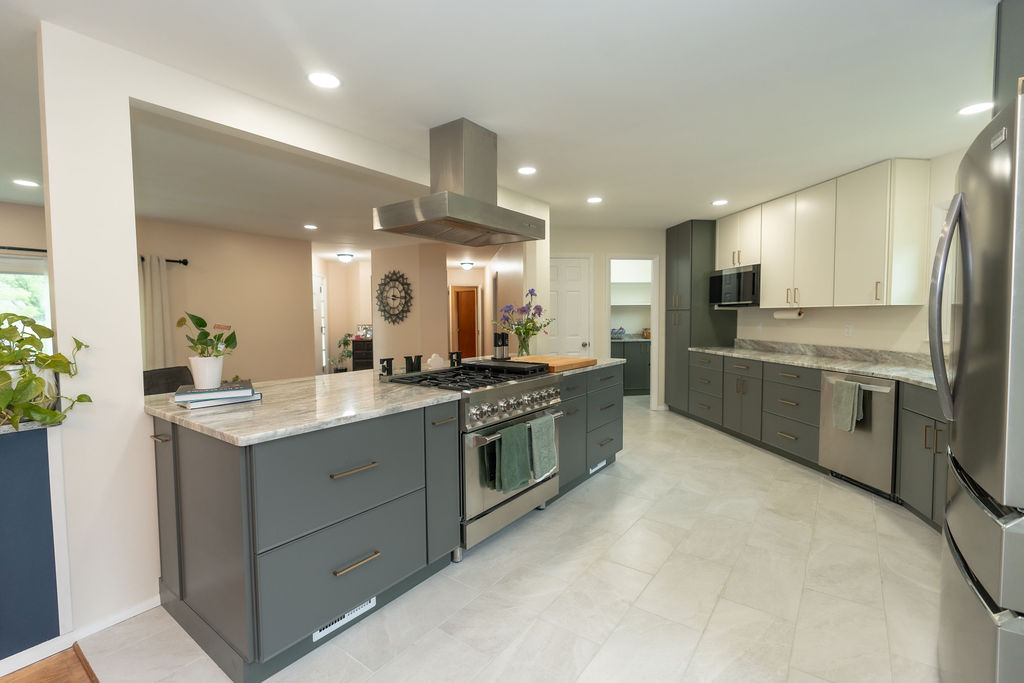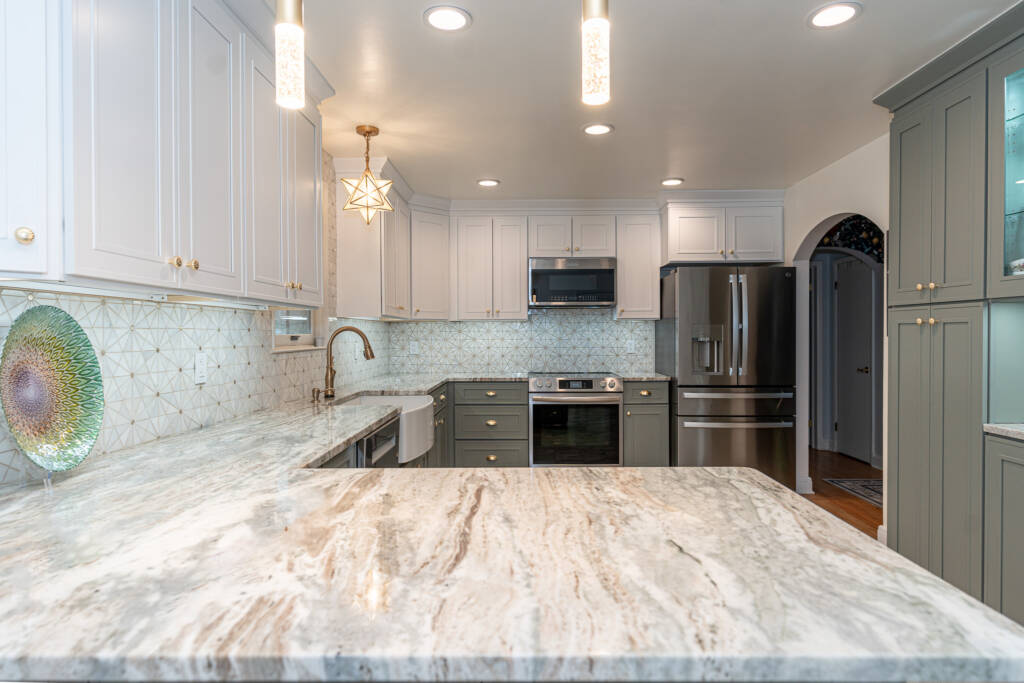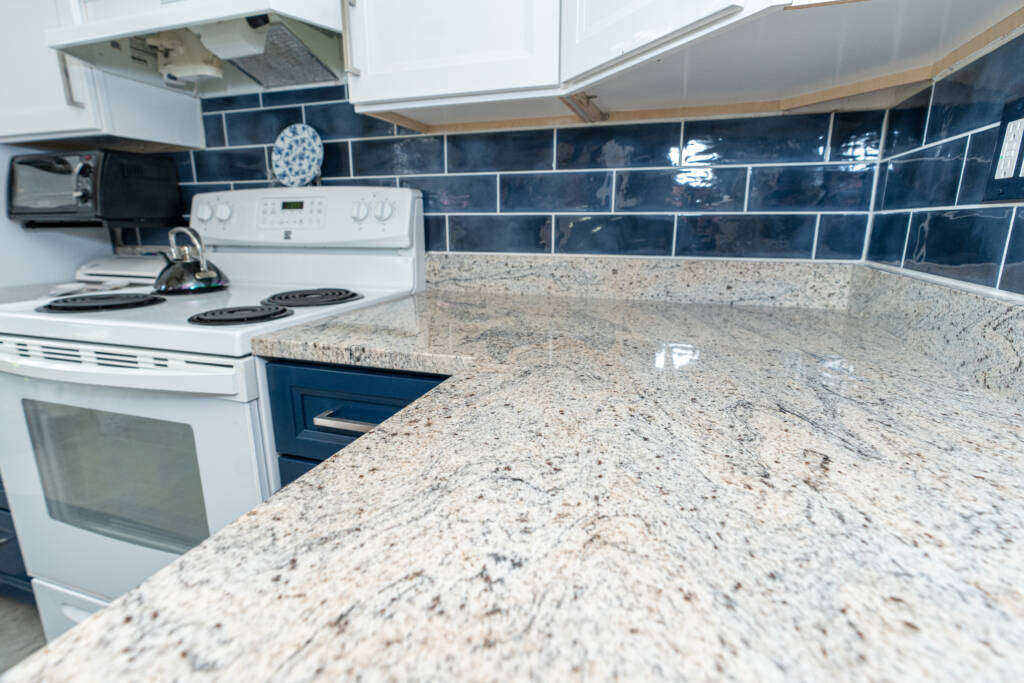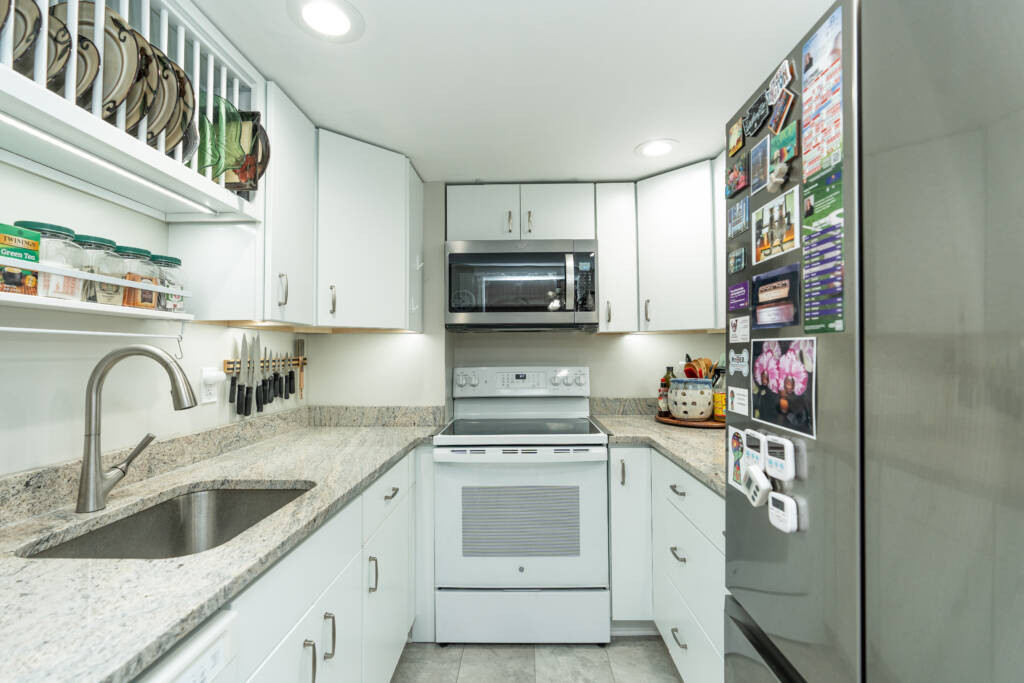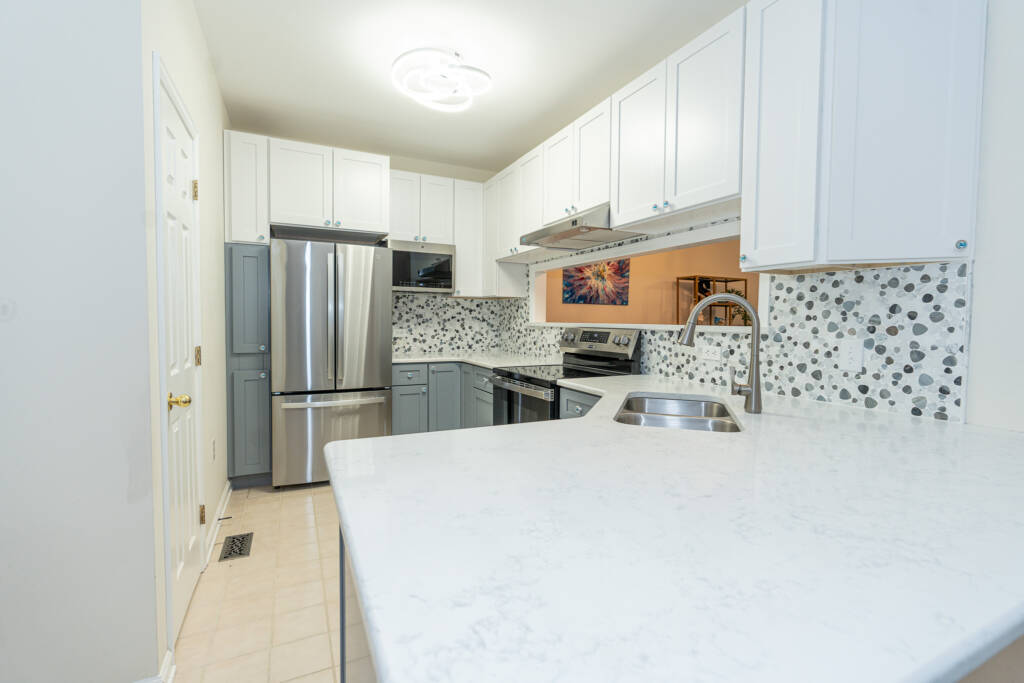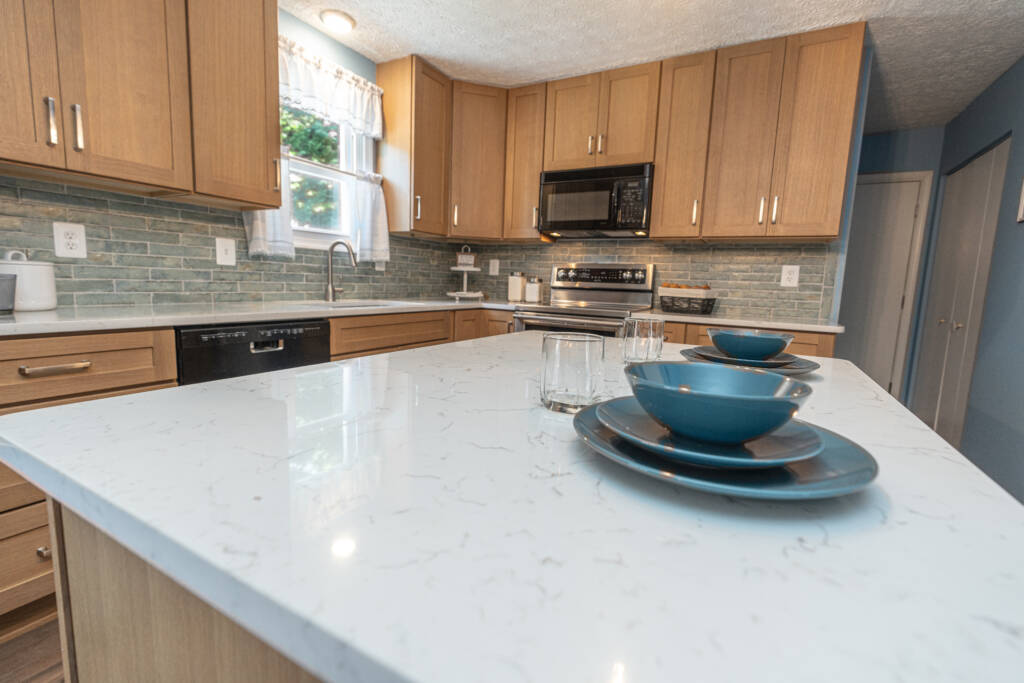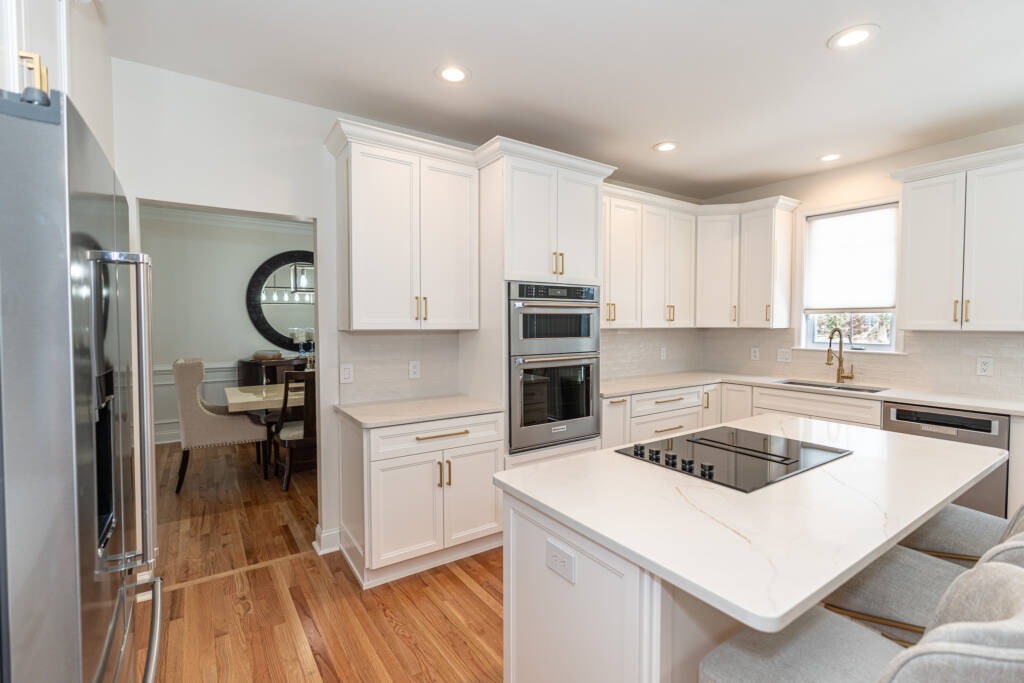What Countertop Material Should I Choose?
When choosing the perfect countertop for your kitchen or bathroom, granite and quartz often top the list. Both offer unique benefits, but understanding their differences can help you make an informed decision. Let’s delve into the specifics of each, along with a brief overview of other popular countertop materials.
Granite
Natural Beauty and Durability
Granite is a natural stone quarried directly from the earth, offering unique, one-of-a-kind patterns and colors. Each slab is distinct, providing a personalized touch to your space. Granite is known for its durability and heat resistance, making it ideal for kitchen environments.
Benefits:
- Unique Aesthetics: No two slabs are alike, ensuring a distinctive look.
- Scratch Resistance: Highly resistant to scratches and daily wear.
Considerations:
- Porous Nature: Requires regular sealing to prevent stains and bacterial growth.
- Natural Variations: Inconsistencies in patterns may not appeal to those seeking uniformity.
Quartz
Engineered Consistency and Lower Maintenance
Quartz countertops are engineered from crushed quartz crystals combined with resin, resulting in a non-porous, uniform surface. This composition offers a sleek appearance and requires minimal maintenance.
Benefits:
- Non-Porous Surface: Resists staining and bacterial growth without the need for sealing.
- Consistent Appearance: Uniform patterns and colors cater to modern design preferences.
- Durability: Highly resistant to scratches and everyday wear.
Considerations:
- Heat Sensitivity: Can be damaged by excessive heat; using trivets is recommended.
- Artificial Appearance: Lacks the natural variations found in stone like granite.
Other Popular Countertop Materials
While granite and quartz are popular choices, other materials may better suit specific needs:
Marble: Offers a luxurious look with unique veining but is prone to scratching and staining.
Butcher Block: Provides a warm, rustic aesthetic and is gentle on knives but requires regular maintenance to prevent damage.
Concrete: Customizable and durable but can develop hairline cracks over time.
Laminate: Budget-friendly with a wide range of designs but less durable than other options.
Things to Think About
Here are a few key things to consider:
Lifestyle: Busy household or frequent cook? Choose low-maintenance quartz. Love natural variation and don’t mind a little upkeep? Granite may be perfect.
Budget: Granite and quartz are both premium surfaces, but prices can vary depending on color, availability, and slab size.
Style: Granite offers one-of-a-kind natural beauty. Quartz provides clean, consistent patterns for a more modern look.
Maintenance: Quartz needs no sealing. Granite comes pre-sealed from our supplier (JPS Granite), but may need occasional resealing over time.
Durability: Both resist scratches and everyday wear. Granite handles heat better; quartz is more stain-resistant.
Still Can't Decide?
Reach out to our team—we’ll help you weigh the options and choose the right surface for your home and lifestyle.
Schedule your complimentary design consultation and estimate with Kitchens Rx today, and take the first step towards the perfect kitchen.


